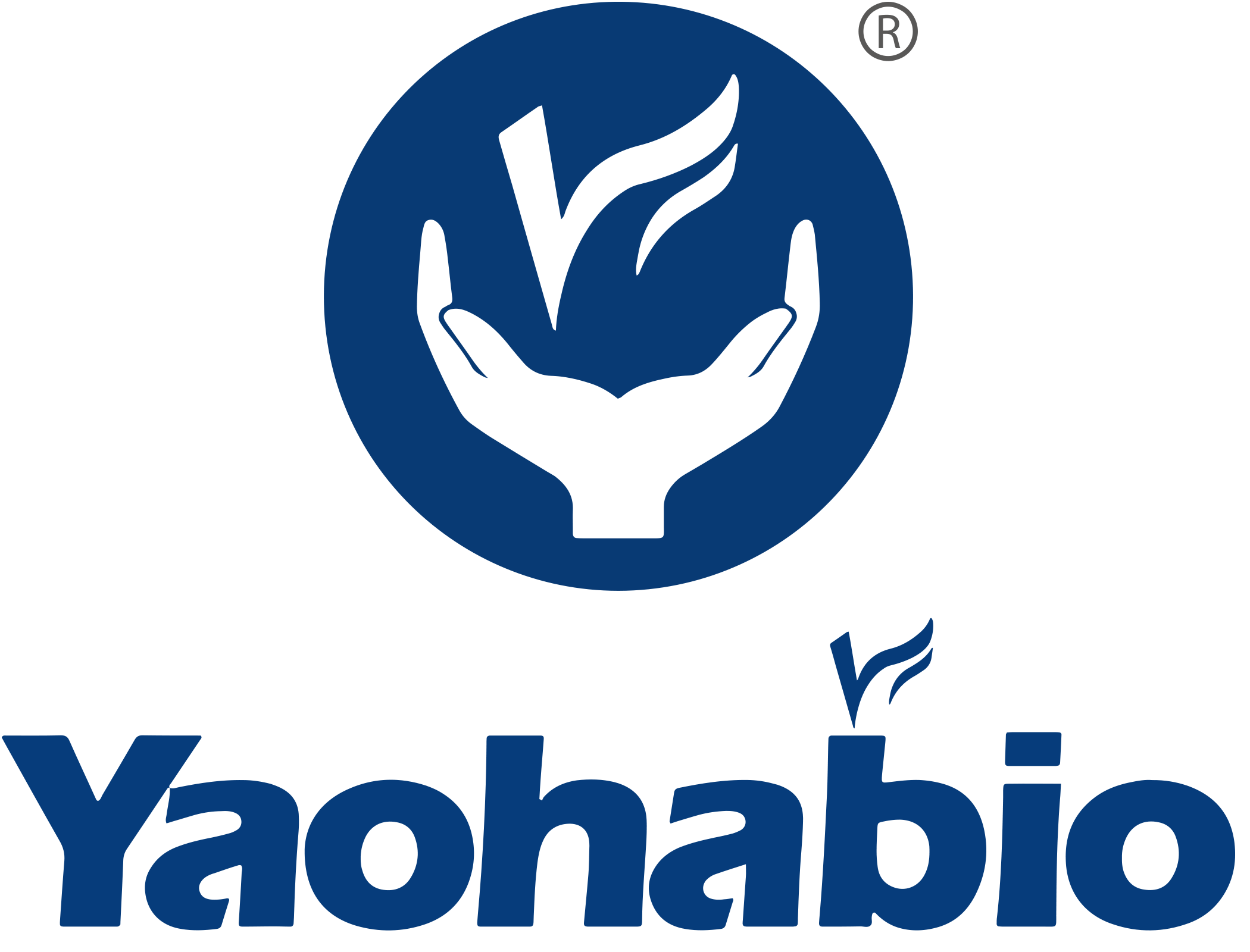כיבושו של אייפייטיס B עם Yaohai
הארגוןגניזציה העולמית לבטיחות הבריאות (WHO) מדווחת כי מדי שנה מתגלים 1.5 מיליון מקרים חדשים של זיהום כרוני בהפטיטיס B, השפיעים על 296 מיליון איש ברחבי העולם. הפטיטיס B הוא המחלה שגורמת למספר מוות הגדול ביותר לאחר COVID-19. לכן, עלינו להעניק קדימות למניעה וגילוי של הפטיטיס B.
במקרה זה, נושאת הפטיטיס B (HBV) היא הסיבה הישירה להפטיטיס B. במאמר זה, Yaohai Bio-Pharma תדבר על HBV, כולל את סוגיו, גילויו ומניעתו.
סוגי אנטיגן הפטיטיס B
HBV הוא וירוס אייקוסהדרלי המאופיין בשרכו הסגור ובגנום DNA כפול שרשרת (dsDNA) עגול. בין האנטיגנים שלו נמצאים אנטיגן פניית הפטיטיס B (HBsAg), אנטיגן ליבה של הפטיטיס B (HBcAg) ואנטיגן e של הפטיטיס B (HBeAg).
לוקחים חיסונים נגד הפטיטיס B שמשתמשים בכוחו של HBsAg המבוסס על רקורסיה כרכיב האקטיבי שלהם. HBcAg, הפרוטאין המבנהי העיקרי של הנוקלאוקפסיד העשרוני של HBV, מגלם תפקיד קריטי בהשכנת הוירוס. זיהוי אנטיבד ל核心区 של הפטיטיס B (anti-HBc או HBcAb) משתמש ב-HBcAg המבוסס על רקורסיה. מצד שני, HBeAg מתואר כ"לא חלקיקי", מופרש לתוך הדם, וצובר בסרום. הוא ממוקם אסטרטגית בין ליבה העשרונית של נוקלאוקפסיד והקרום השומני. מעניין ש-HBcAg ו-HBeAg משתפים את אותו מסלול קריאת הגנום לייצורם.
זיהוי של HBV
ה-HBsAg וה-HBcAg הרכיבים מילאו תפקידים מכריעים באיתור HBV בגוף האדם. האנטיבדיון ה-HBsAb, שספציפיותו גבוהה מאוד ל-HBsAg, הוא סימן חיוני המאיר על יעילות החיסון או על תקלה טבעית. תוצאה חיובית או ריאקטיבית של בדיקת ה-HBsAb איננה מסמנת בלבד את חוסינות הפרט נגד HBV אלא גם מדגימה את הצלחת מאמצי החיסון או מספקת תובנות לגבי מצב המחלה לאחר ההידבקות.
במגמת הקדימה בתחום המומחיות של התסיסה מיקרובית, יאוהיי בייו-פרמה השתמשה בחוויה הרחבה שלה וסיימה בהצלחה מאות פרויקטים对此领域的交付. תיבות הבדיקה ל-Anti-HBs שמשתמשים בבדיקות אלו מכילות תת-סוגים רקורסיביים של HBsAg, ספציפית ad ו-ay, שמופקים מסוגיות Escherichia coli (E. coli) שנצמחו בעקביות. באמצעות טכנולוגיות מתקדמות ושירותי CDMO מקיפים, יאוהיי בייו-פרמה מבטיחה את נقاء והיציבות של האנטיגנים הללו, מה שמעלה את הדיוק והנאמנאות של מוצרים הדיאגנוסטיים של הלקוח.
למעשה, מחקרים הצביעו על הסיכון הפוטנציאלי הקשור להעברת דם שחיובי לאנטיבדים נגד anti-HBc אך שלילי ל-HBsAg, שכן הוא עשוי להפעיל את מחלת הכבדatitis בחלק מהמקבלים. לכן, יישום פרוטוקולי בדיקה עבור anti-HBc בדם שלם וברכיבי דם מיועדים להעברה הוא חיוני כדי להפחית תרומות קשורות להדבקה ב-HBV, כך יתגלה הבטחון של אספקת הדם.
המיכל זיהוי כולל גם HBcAg רקורסנטי שנוצר ב-E. coli. תוצאה חיובית או ריאקטיבית של בדיקת anti-HBcAb מצביעה על היסטוריה של או על תקף מתמשך של הדבקה בכבדatitis B. ראוי לציין כי בניגוד לאנטיבדים בשכבה, האנטיבדים בליבה אינם מספקים חסינות נגד HBV.
מניעת נגיף הכבדatitis B—חיסון נגד HBV
ביצור החיסון נגד HBV, נעשה שימוש רק בהBsAg, השכבה החיצונית המ驷ת את התגובה החיסונית. כחלבון השטח, ה-HBsAg נגיש הוא נגיש נגיש נגיש נגיש נגיש נגיש נגיש נגיש נגיש נגיש נגיש נגישasily נגיש assessible למערכת החיסונית. הוא ממריץ את ייצור חלוצי החיסון שמתאימים במיוחד לחלבון השטח בגוף, מה שמגן מפני זיהומים עתידיים של HBV. עם זאת, ה-HBcAg נמצא במרכז הוירוס, מה שמצמצם את חשיפתו למערכת החיסונית. חיסוניותו חלשה, מה שעושה אותו פחות מתאים לייצור ישיר של חיסונים.
החיסונים הראשונים נגד HBV נגזרו מדם. עם זאת, עם התקדמות הטכנולוגיה המיקרוביולוגית, חיסוני HBV מיוצרים כיום על ידי ה-HBsAg המודifikasi, שיוצר באמצעות שיטות DNA רקורסנטי ובחמץ בשל גורמי בטיחות ביולוגית. בנוסף לביטוי E. coli, Yaohai Bio-Pharma מצטיינת גם בביטוי חמץ, מה שמבטיח שה-HBsAg הרקורסנטי יהיה באיכות גבוהה ויענהอย่าง מחמיר לדרישות הרגולטוריות של החיסון.
חיסונים רקורסנטיים ל-HBV הופקו לראשונה באמצעות מערכת שמרים. החיסונים הקיימים של HBV המבוססים על שמרים מבוססים על אסמבלה עצמית של מונומרים של HBsAg לתוך חלקיקי וירוס דומים (VLPs). דווח כי HBsAg הנקי שמוצאו משמרים מציג VLPs בגודל של כ-22 ננומטר. ו-60% עד 70% מה-VLPs של HBsAg שנוצרו מורכבים מפרוטאינים מונומריים של HBsAg, והשאר מכיל שומנים. סה"כ, ה-VLPs הנוצרים הם גורמי חיסון חזקים, מפעילים תקצובים ניטרלים חזקים, והם חיסון בטוח שאינו כולל אף חלק מהגנום הויראלי.
יאוהאי ביופרמה מחפשת גם כן שותפים גלובליים, מוסדיים או אישיים, ומציעה את התשלום הקומפטיטיבי ביותר בתעשייה. אם יש לכם שאלות כלשהן, אנא לא/Setezesist ליצור איתנו קשר: [email protected]
חדשות חמות
-
Yaohai Bio-Pharma עברה את בדיקת ה-QP של האיחוד האירופי וקיבלה את תקינות ISO משולשת
2024-05-08
-
BiotechGate, מקוון
2024-05-13
-
קונגרס החיסונים העולמי 2024 בוושינגטון
2024-04-01
-
CPHI צפון אמריקה 2024
2024-05-07
-
כנס הבינלאומי BIO 2024
2024-06-03
-
FCE COSMETIQUE
2024-06-04
-
CPHI מילאנו 2024
2024-10-08

 EN
EN
 AR
AR
 HR
HR
 CS
CS
 DA
DA
 NL
NL
 FI
FI
 FR
FR
 DE
DE
 EL
EL
 IT
IT
 JA
JA
 KO
KO
 NO
NO
 PL
PL
 PT
PT
 RO
RO
 RU
RU
 ES
ES
 SV
SV
 IW
IW
 ID
ID
 LV
LV
 LT
LT
 SR
SR
 SK
SK
 SL
SL
 UK
UK
 VI
VI
 ET
ET
 HU
HU
 TH
TH
 TR
TR
 FA
FA
 AF
AF
 MS
MS
 BE
BE
 MK
MK
 UR
UR
 BN
BN

